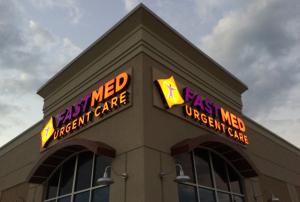Medial collateral ligament (MCL) knee sprains are common injuries in which the ligament on the inside of the knee is torn. These sprains most often occur in sports such as soccer, football, and rugby, but they can happen off the playing field as well.
Any direct blow to the knee — most often from falls and twists — can result in a MCL sprain. There are several ways to identify and treat a MCL knee injury, and following a few simple preventive steps could save you from the pain a knee injury causes.
Grading MCL Injuries
MCL sprains and tears can range in severity. In order to determine the degree of your injury and how to treat it, a grading system is used as outlined below:
- Grade 1. This categorizes mild injuries, which normally take about two weeks to heal. Tenderness on the inside of the knee and little-to-no swelling are typically symptomatic of this low level MCL knee sprain.
- Grade 2. Moderate knee ligament injuries fall under this category and can take about a month to heal. Symptoms of this level of sprain include extreme sensitivity on the inside of the knee and overall knee swelling.
- Grade 3. This grade signifies a complete ligament tear and can take up to six months to heal. Pain can vary in this stage. A wobbly or unstable feeling in the knee is one of the more telling symptoms of a complete tear.
MCL Sprain Treatments
 MCL knee sprain treatments may vary depending on which injury grade you have sustained, but there are three general steps that can be used to treat all MCL sprains:
MCL knee sprain treatments may vary depending on which injury grade you have sustained, but there are three general steps that can be used to treat all MCL sprains:
- The RICE method (Rest, Ice, Compression, and Elevation)
- Reduced activity, usually in accompaniment with crutches and/or a knee brace
- Physical therapy to help rebuild muscle and mobility
Preventing MCL Sprains
Incorporate these preventive measures into your daily activities to reduce your chance of suffering a MCL knee sprain. Here are some ideas for you to consider:
- Warm up properly before exercise.
- Avoid activities that may cause pain or injury.
- Rest and allow the body’s soft tissues to recover from strenuous activity.
- Incorporate balancing exercises into your routine.
- Stretch each morning and after strenuous exercise.
- Perform strengthening exercises that target the major muscles and tendons located around the knee joint.
- Wear supportive footwear.
- Wrap or tape a weak knee before exercise.
- Wear a knee brace if necessary.
MCL Knee Sprain Treatment at FastMed Urgent Care
If you suffer a MCL knee sprain, visit the medical professionals at FastMed Urgent Care for treatment that is caring, affordable, and fast.
We are ready to handle any of your immediate medical needs. We have X-rays and on-site labs for any diagnostic needs, and at FastMed Urgent Care, you never need an appointment.
We accept all major insurance plans, including Medicare and Medicaid so check out our Insurance page to confirm that your plan is accepted before coming in for MCL knee sprain treatment.
Don’t just take our word for it! Check out what Linda S. had to say about the compassionate care at FastMed Urgent Care:
“I rushed in your doors at closing time with my daughter. She had quite a gash that needed medical treatment with multiple stitches. You did an excellent job and her wound and stitches have healed beautifully!”
———-
Sources:
Healthline: https://www.healthline.com/health/medial-collateral-ligament-mcl-injury-of-the-knee
Sports Injury Clinic: http://www.sportsinjuryclinic.net/sport-injuries/knee-pain/mcl-sprain
StretchCoach: http://stretchcoach.com/articles/mcl-injury/
WebMD: https://www.webmd.com/fitness-exercise/medial-collateral-ligament-mcl-injury